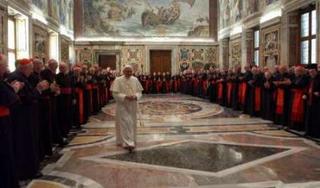How can new life be breathed into what seems to so many to be boring or obsolete? How can we rekindle the sense of mystery and majesty, enthusiasm for the most essential things, a sense of awe and wonder?
Not by over-explanation or hyper-analysis, certainly. The only words that might spark a fire are those that capture and hold out the Light as it is. Poetry is all I know.
But beyond words there are concrete signs which can shed light on the deepest meanings of the liturgy. But what can draw the distracted attention of so many to these silent things? What can make this thanksgiving, consecration, memorial, and offering VITAL to people who seem interested only in themselves and their own image? How, for example, can the altar itself arouse the wonder that it should? What will help us recognize and appreciate the altar as a sign of the sacrifice of the cross, the table of the Eucharistic meal, the symbol of the tomb left empty by the Risen One?
This seems to me to be an urgent need today - to somehow refocus attention toward Christ's Presence among us, toward contemplative adoration, to allow Him to reveal His Light and Presence in Word and Sacrament, to somehow encourage this dynamic of the people waiting on, expecting, encountering Him personally.
How can our gaze and our hearts be directed toward Him?
How can we be opened up to transcendence?
Not by over-explanation or hyper-analysis, certainly. The only words that might spark a fire are those that capture and hold out the Light as it is. Poetry is all I know.
But beyond words there are concrete signs which can shed light on the deepest meanings of the liturgy. But what can draw the distracted attention of so many to these silent things? What can make this thanksgiving, consecration, memorial, and offering VITAL to people who seem interested only in themselves and their own image? How, for example, can the altar itself arouse the wonder that it should? What will help us recognize and appreciate the altar as a sign of the sacrifice of the cross, the table of the Eucharistic meal, the symbol of the tomb left empty by the Risen One?
This seems to me to be an urgent need today - to somehow refocus attention toward Christ's Presence among us, toward contemplative adoration, to allow Him to reveal His Light and Presence in Word and Sacrament, to somehow encourage this dynamic of the people waiting on, expecting, encountering Him personally.
How can our gaze and our hearts be directed toward Him?
How can we be opened up to transcendence?






